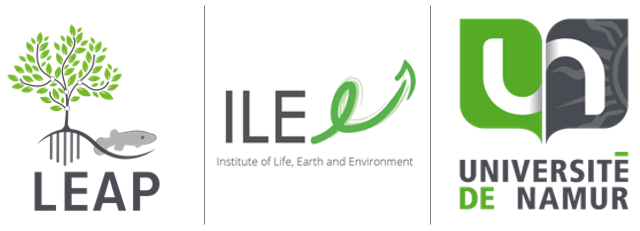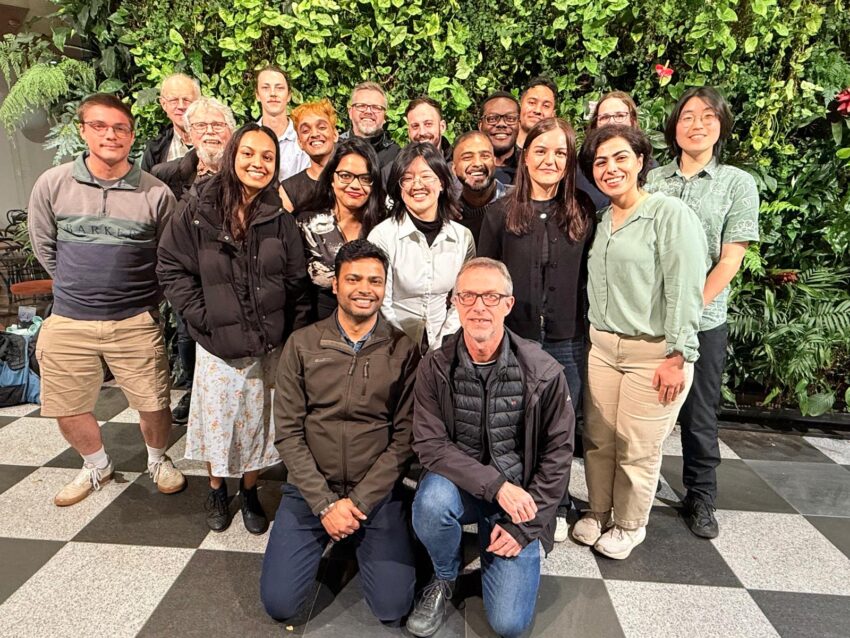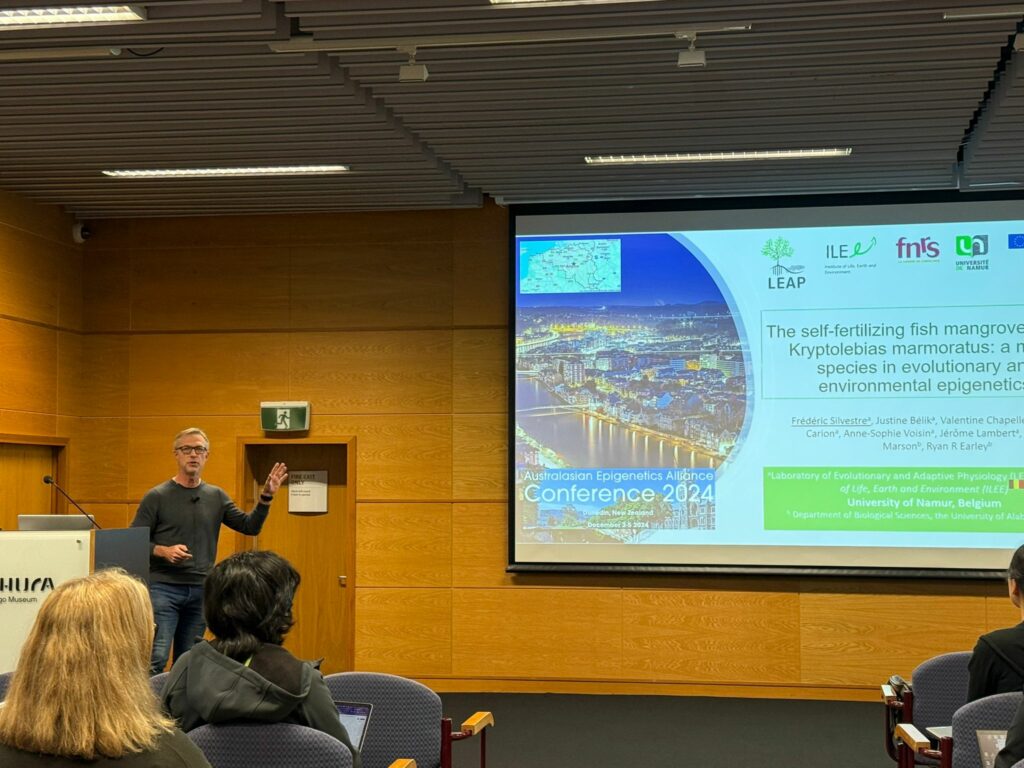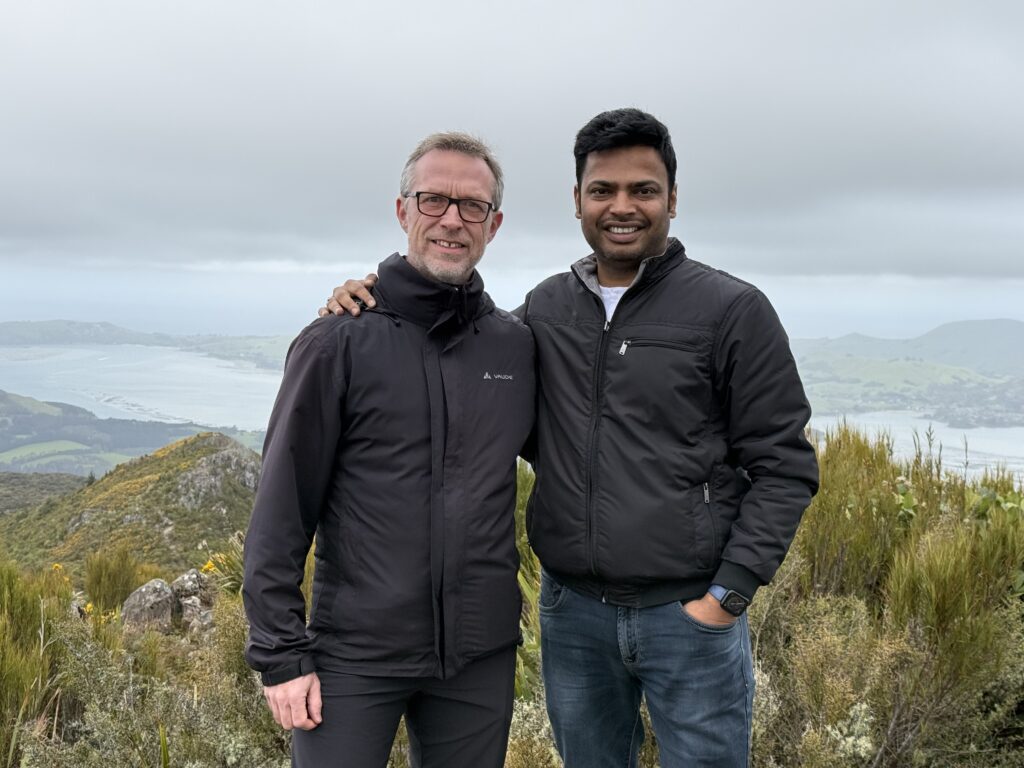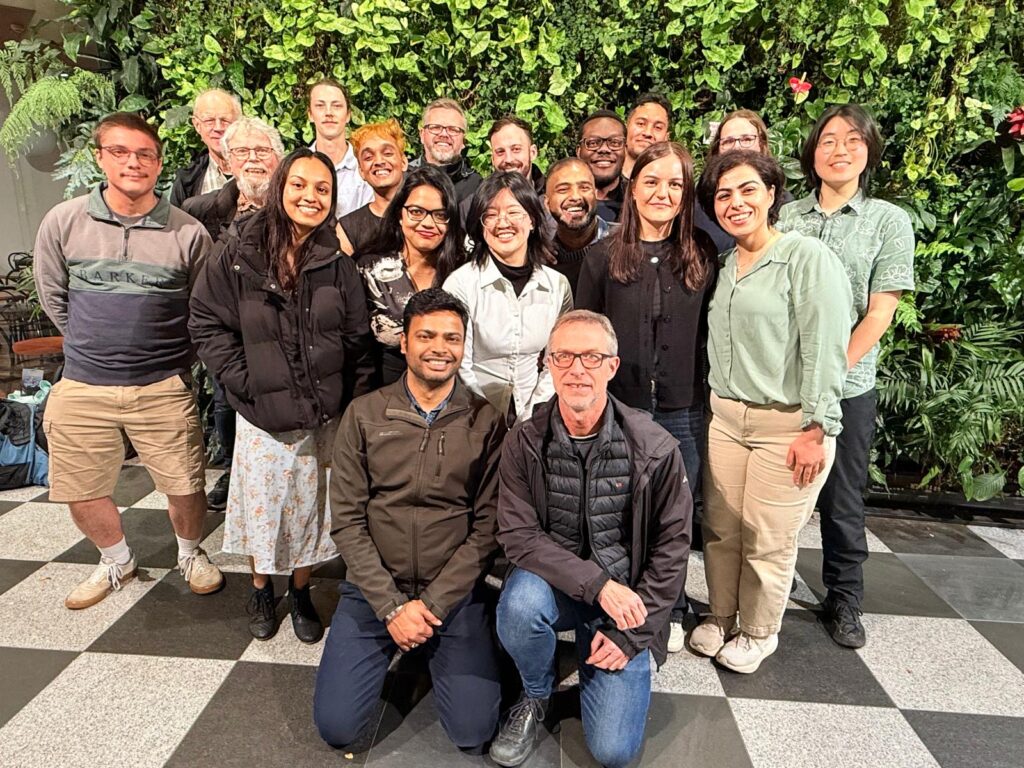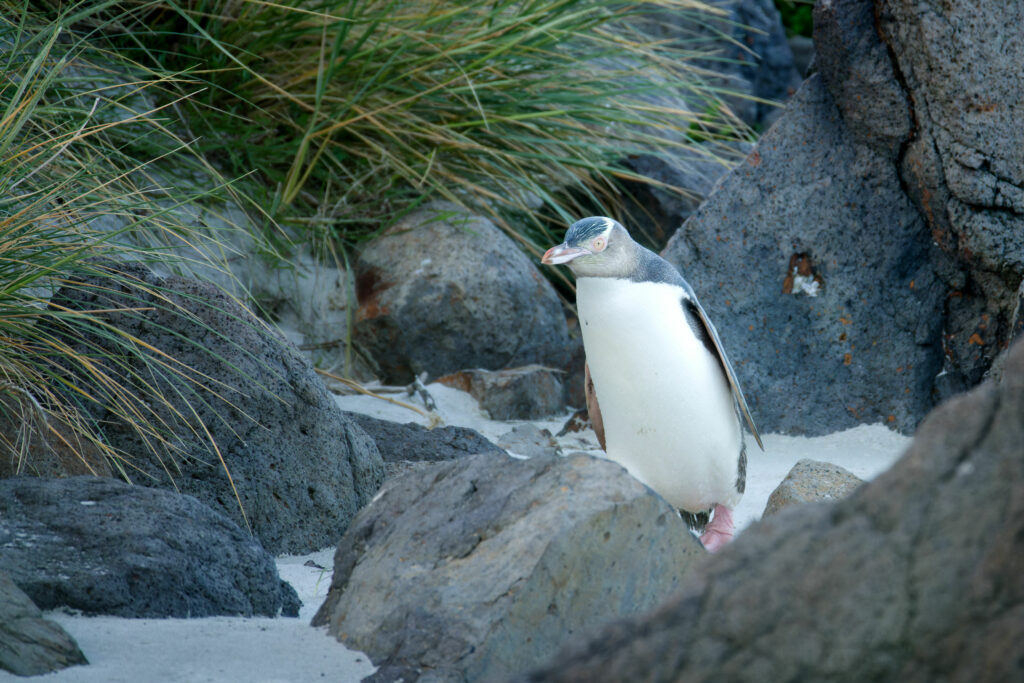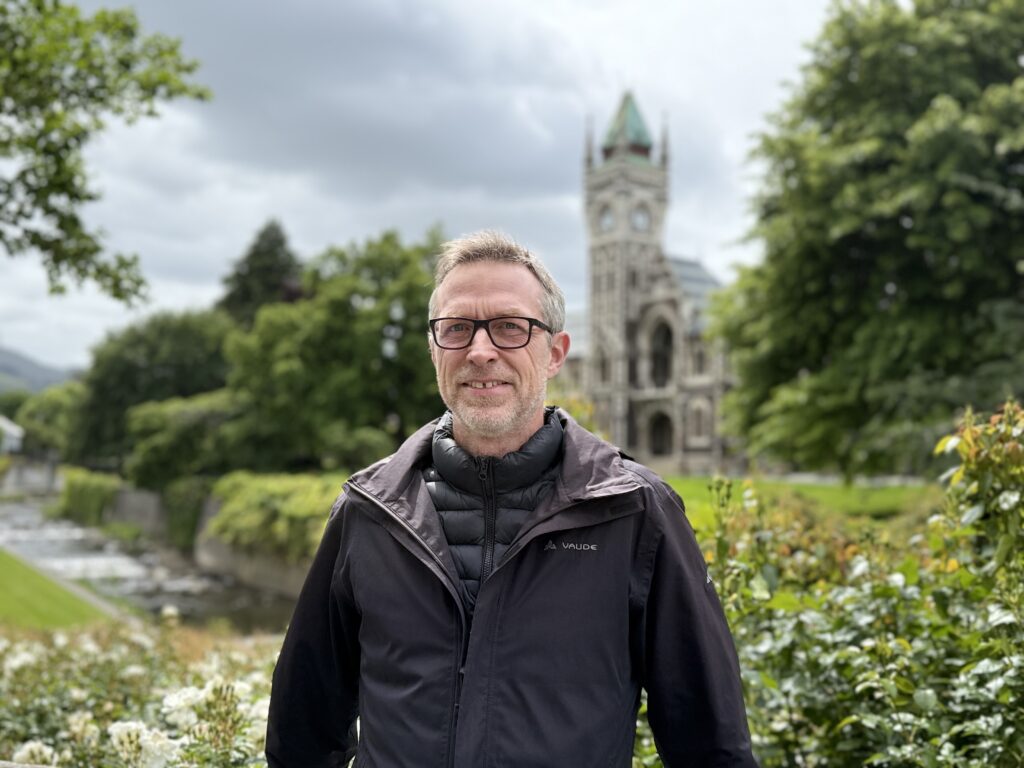Frédéric Silvestre recently spent two weeks at the University of Otago in Dunedin, located in the southeastern region of New Zealand. This visit provided an excellent opportunity to strengthen the longstanding collaboration, initiated in 2014, with Dr. Aniruddha Chatterjee, a renowned expert in cancer epigenetics and professor in the Department of Pathology.
During his stay, Frédéric deepened his understanding of the advanced DNA methylation techniques employed by Dr. Chatterjee’s team, including their bioinformatic workflows and the innovative approach of epigenetic editing. A key objective of this collaboration is to adapt CRISPR-dCas9 editing for killifish species in Namur, enabling targeted epigenetic modifications.
In addition to lab work, Frédéric delivered several seminars showcasing LEAP’s research on the mangrove rivulus and the turquoise killifish. His visit coincided with the Australasian Epigenetic Alliance conference, hosted by the University of Otago, where he presented a talk and engaged with leading researchers from Australia and beyond. Notably, he shared his work with leading scientists like Dr. Sue Clark, the inventor of the bisulfite sequencing method, or Dr. Ryan Lister, an epigenome specialist famous for human methylome mapping.
Frédéric also explored potential new collaborations during visits to other departments, including Zoology, Sustainability, Chemistry, and Marine Sciences. Beyond academic activities, he embraced the unique New Zealand wildlife, encountering endemic species such as the critically endangered yellow-eyed penguin.
Looking ahead, this productive exchange will foster further collaboration, supported by the partnership agreement between Otago and Namur and the Erasmus+ International Mobility Exchange fellowship.
